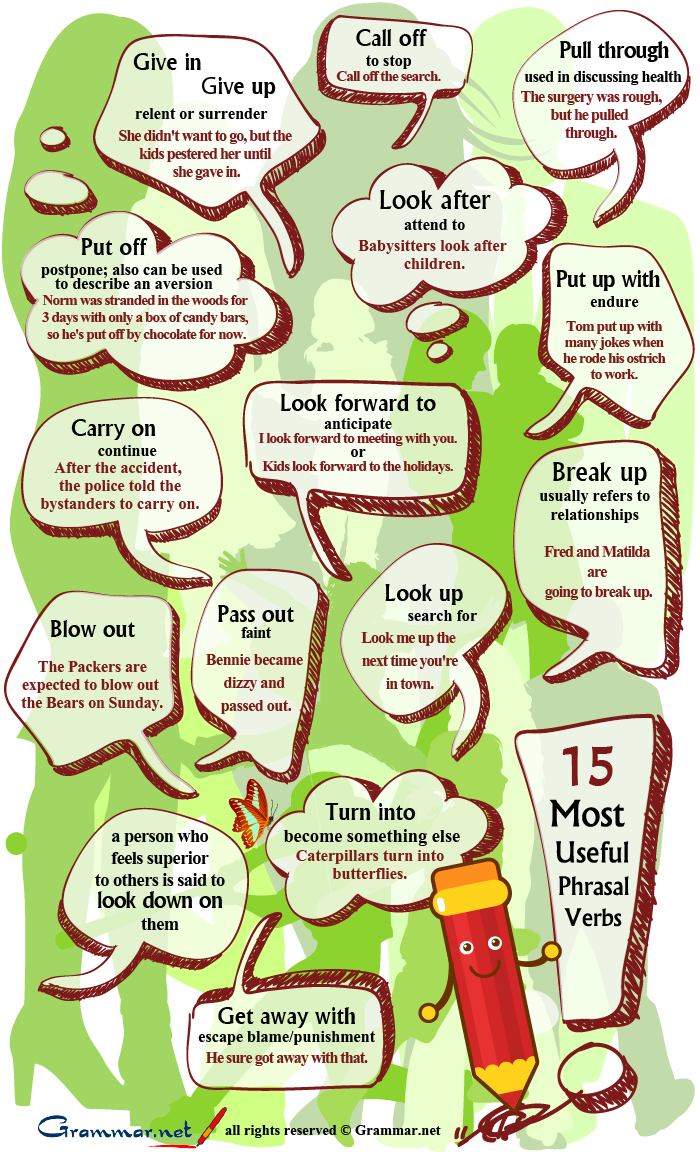Self-Study Tasks.REMEMBER THAT WHAT YOU SAY IS USUALLY LESS IMPORTANT THAN HOW YOU SAY IT.
пятница, 1 марта 2013 г.
четверг, 28 февраля 2013 г.
вторник, 26 февраля 2013 г.
понедельник, 25 февраля 2013 г.
15 Most Useful Phrasal Verbs
15 Most Useful Phrasal Verbs
A phrasal verb is a combination of words that takes on unique meaning. Because they have little to do with the words they are made of, they can be confusing to those learning English. The majority of phrasal verbs are slang and occur most frequently in spoken English, so meanings can usually be determined by the conversation, but an online phrasal verbs dictionary is helpful.
Some phrasal verbs in English routinely appear in online phrasal verbs lists; these 15 are handy to know.
1. “Call off”: to stop–”call off the search”–and used when phoning in to work. “I called off today because I’m sick.”
Ярлыки:
conversation,
grammar
Modals “Need to” & “Had Better”
Modal Verbs can be tricky, so I though I would help you guys understand them. Let’s look at need to and had better today!
The other day, I showed you how to use must and have to. Today, I’d like to continue the conversation about models and look atneed to and had better.
Ярлыки:
grammar
воскресенье, 24 февраля 2013 г.
I'll keep an eye out for it.

Your coworker lost one of her earrrings and is looking for it. You haven't seen it and you're not going to search for it, but you want to say something supportive to your coworker anyway. I'll keep an eye out for it.
keep an eye out for (something)
Ярлыки:
conversation
Подписаться на:
Сообщения (Atom)








